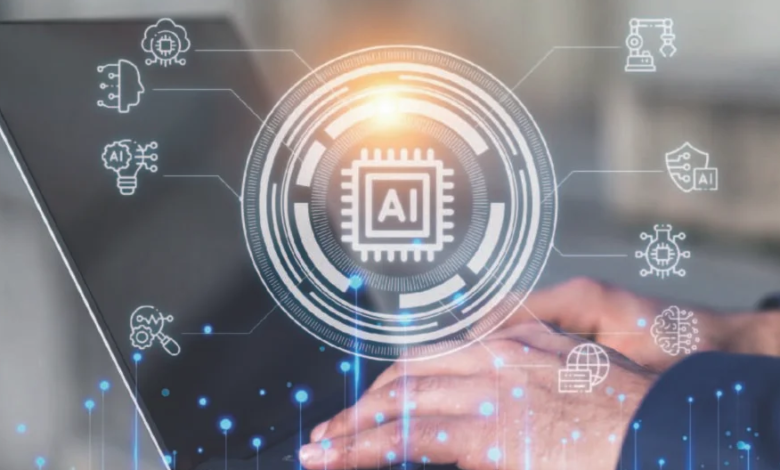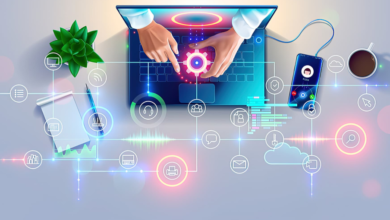AI in Everyday Life: How Artificial Intelligence is Transforming Our Daily Routines

Artificial Intelligence (AI) has moved beyond the realm of science fiction and into the core of our daily lives. From smartphones that recognize our faces to smart home devices that anticipate our needs, AI is quietly but profoundly transforming the way we live, work, and interact. This article explores the many ways AI impacts everyday life, the benefits it brings, and the challenges it presents.
Understanding AI: A Quick Overview
Artificial Intelligence refers to computer systems designed to perform tasks that typically require human intelligence. These tasks include learning from experience, understanding natural language, recognizing patterns, and making decisions. AI can be categorized into:
- Narrow AI: Specialized systems designed for a single task, such as voice assistants or recommendation engines.
- General AI: A more advanced concept where machines possess human-like cognitive abilities across a variety of tasks (still largely theoretical).
- Machine Learning & Deep Learning: Subfields of AI where machines learn from data and improve performance over time.
With these capabilities, AI has become embedded in numerous aspects of daily life, often without us even realizing it.
AI in Personal Devices
Smartphones and Virtual Assistants
One of the most visible uses of AI is in our smartphones. AI powers virtual assistants like Siri, Google Assistant, and Alexa, enabling them to understand speech, answer questions, schedule tasks, and control smart home devices. Predictive text and autocorrect features also rely on AI algorithms to enhance typing speed and accuracy.
Personalized Recommendations
AI algorithms track user behavior to offer personalized recommendations. Whether it’s Netflix suggesting a new series, Spotify curating a playlist, or Amazon recommending products, these systems learn from user preferences to provide highly customized experiences.
AI in Smart Homes
The concept of the “smart home” has been brought to life through AI. Devices like smart thermostats, lights, and security systems learn user habits and adjust automatically for comfort, efficiency, and security. For example, Nest thermostats learn your schedule to optimize heating and cooling, reducing energy consumption while keeping your home comfortable.
See also: Enhancing Online Presence through Effective Digital Practices
Home Security and Surveillance
AI-powered cameras can recognize familiar faces, detect unusual movements, and send instant alerts to homeowners. This level of automation enhances safety while reducing the need for constant human monitoring.
AI in Healthcare
AI’s impact on healthcare is revolutionary. From diagnostic tools to personalized treatment plans, AI helps medical professionals deliver better care. Examples include:
- Medical Imaging: AI algorithms analyze X-rays, MRIs, and CT scans with remarkable accuracy, often spotting issues faster than human eyes.
- Predictive Analytics: AI predicts disease outbreaks or patient risks based on historical data.
- Virtual Health Assistants: AI chatbots provide initial consultations, reminders for medication, and answer health-related questions.
AI doesn’t replace healthcare professionals but augments their capabilities, leading to more accurate diagnoses and improved patient outcomes.
AI in Transportation
Autonomous vehicles are one of the most talked-about applications of AI. Self-driving cars use AI to process real-time data from sensors, cameras, and maps to navigate safely. While fully autonomous cars are still under development, AI already powers ride-sharing apps, traffic management systems, and navigation tools, making transportation more efficient and safer.
AI in Traffic Management
Cities increasingly rely on AI to manage traffic flow, reducing congestion and improving commute times. AI algorithms can adjust traffic signals dynamically and predict accidents or bottlenecks before they occur.
AI in Education
AI is reshaping education by personalizing learning experiences. Intelligent tutoring systems adapt content based on student performance, ensuring that learners receive the support they need. AI also automates administrative tasks like grading and scheduling, freeing teachers to focus on instruction.
Virtual Classrooms and Adaptive Learning
During the rise of remote learning, AI-powered platforms provided interactive lessons, real-time feedback, and personalized study plans. These tools help students learn at their own pace and identify areas requiring extra attention.
AI in Retail and Shopping
AI transforms the retail experience, both online and offline. E-commerce platforms use AI to recommend products, forecast demand, and optimize pricing strategies. In physical stores, AI monitors inventory, predicts trends, and even powers cashier-less checkout systems, making shopping more efficient for consumers and businesses alike.
Chatbots and Customer Service
AI chatbots handle customer inquiries 24/7, providing instant responses and resolving common issues. This improves customer satisfaction while reducing the workload on human support teams.
The Benefits of AI in Everyday Life
AI offers numerous advantages that improve convenience, efficiency, and decision-making:
- Time-Saving: Automation of repetitive tasks allows humans to focus on more meaningful activities.
- Personalization: AI tailors experiences to individual preferences.
- Improved Accuracy: In areas like healthcare, finance, and logistics, AI minimizes human error.
- Predictive Capabilities: AI anticipates user needs, trends, and potential risks.
Challenges and Ethical Considerations
Despite its benefits, AI presents several challenges:
- Privacy Concerns: AI systems often require access to personal data, raising questions about data protection.
- Job Displacement: Automation may replace certain jobs, necessitating workforce reskilling.
- Bias in AI: Algorithms can unintentionally perpetuate existing social biases if trained on biased data.
- Dependence on Technology: Over-reliance on AI may reduce human skills and critical thinking.
Addressing these challenges requires robust regulations, ethical AI design, and continuous monitoring.
The Future of AI in Daily Life
The integration of AI into everyday life is expected to grow exponentially. Future developments may include:
- Smarter Homes: Homes that anticipate needs before the user even communicates them.
- AI in Mental Health: Advanced AI tools that assist in therapy and emotional well-being.
- Seamless Mobility: Autonomous vehicles and AI-managed public transportation networks.
- Enhanced Creativity: AI tools that collaborate with humans in art, music, and writing.
AI’s potential is immense, but its success will depend on balancing innovation with ethical and social responsibility.
Conclusion
Artificial Intelligence is no longer a futuristic concept—it is a present reality shaping our daily lives. From personal devices and smart homes to healthcare, education, and transportation, AI offers convenience, efficiency, and personalization. However, as we embrace AI, it is crucial to consider privacy, ethics, and societal impacts. By understanding AI’s capabilities and limitations, we can leverage it responsibly to enhance the quality of life, making the ordinary extraordinary.





